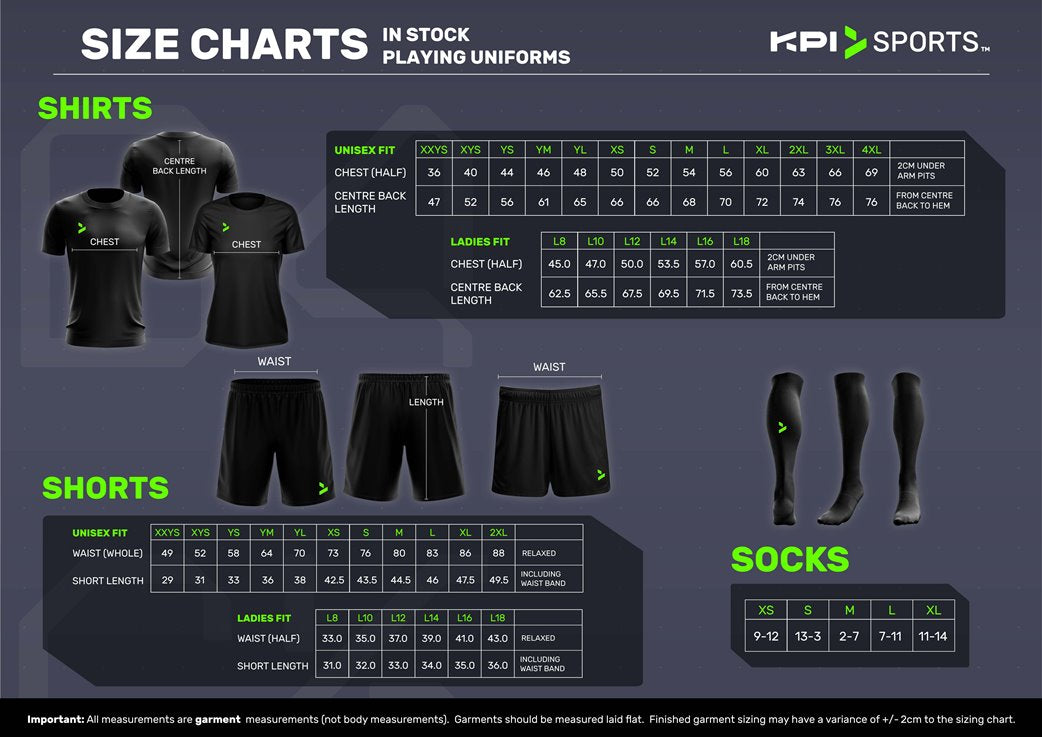Fundraising Tips From An Expert

The success of Australian community sport is critically linked to the stability and volume of funding flowing to individual clubs. As volunteer run not-for-profit organisations, most community clubs struggle to create long term sustainable income streams, aside from player fees. At KPI Sports, we believe there is an opportunity for community sports clubs to improve their long-term financial viability by introducing some of the fundraising practices used by professional sports and other large not-for-profit organisations.
To learn more about this, we spoke to Nigel Harris, director of fundraising consultancy Nigel Harris & Associates and former CEO of the Mater Foundation, for his perspective on fundraising opportunities for the community sports sector. Nigel’s knowledge and experience provides some valuable insight into how community sports clubs can take relatively small steps to create more stable and recurring fundraising strategies.
Key Points:
- Keep it simple and be consistent – set an achievable plan and stick to it
- Build loyalty in your community – emotion drives commitment
- Keep communicating
Goal Setting
There is no magic formula for increasing fundraising income. The “secret” is creating specific, realistic and achievable goals and remaining committed to achieving these. What does this mean in practice? For community clubs, start with clear objectives.
“Have a clear picture of what you are trying to achieve. What is your total fundraising target? How much will be dedicated for ongoing operational needs? How much for one-off larger costs? Focus on continuing income, not one-off capital, for sustainability and consistency in fundraising strategies”, said Mr Harris.
Remember that it is always better to start small and build on successes than set unachievable goals that are likely to fail.
Mr Harris said to “stay focused on these goals and keep it simple. Choose a small number of straightforward, clear and achievable strategies and consistently follow them through”.
Establish a committed group of volunteers to coordinate fundraising. Start by delegating small and achievable tasks for each group member so everyone understands their role and the work is shared. A common reason for failure is loading up one (initially eager) volunteer who burns out quickly and is unwilling to get involved again. Break down the work into small, achievable parts.
An easy way to cross-check your plan before putting it into practise is to run the “simple” test. Is your fundraising strategy simple to implement, simple for people to understand, simple to get involved, simple to give?
Build A Loyal Community
Mr Harris believes community clubs could do a lot more to develop a supporter fundraising base through emotion and loyalty. In other words, if a club can create strong emotional connection with its supporters, this connection and loyalty automatically delivers a strong fundraising base.
To build loyalty, focus on the human factor, make club communications personal and emotional, engage your supporters and give them a way of “doing good”. The aim should be for supporters to feel good when they donate funds to the club. Your club’s supporters want to be part of a community - build on this to create effective fundraising strategies instead of focusing solely on securing sponsorship from local businesses.
Mr Harris stressed that “loyalty is a powerful motivator for community club donators. Growing trustworthiness within your supporters will greatly assist in meeting your target fundraising. So do not forget to engage with people’s loyalty and give your supporters a reason to donate.”
Who makes up a club’s community? These are players, players families and friends, past players and the sponsor community. Think about this group in terms of basic demographics and what will resonate with them. Always connect your fundraising strategy back to this supporter base, consistently engage with them and give them an emotional reason to donate.
Communicate And Recognise
Keep asking! If you don’t remind your supporters to give, they won’t. Follow up initial requests with reminders (make this automated where possible), don’t launch a campaign and then never mention it again. Consistency in communication is critical. Keep the relevance and don’t drop the messaging off.
“Make sure to follow up with your supporters. If you are not reminding your loyal donators to give, they will forget. Send them gentle reminders where possible and continue to share your club’s vision with your community, so everyone knows what the money will be going towards. What are goals and motives driving your fundraising strategy? Share this with your supporters. Let them be a part of your vision” Nigel said.
When supporters do donate, thank them and leave them with a feeling of “having done good”. The importance of recognition can’t be underestimated. It is important for donors, as well as volunteers and sponsors, and this is not always handled well by community clubs.
Acknowledge supporters before, during and after any fundraising event. This can be done in your newsletters, on tickets, in advertising, but is always best done with a personal touch. If the contribution is significant consider a gift, plaque, or some form of permanent acknowledgement. Genuine and generous appreciation for your supporters will encourage them to return year after year.
To read our tips for attracting club sponsors click here.
To read how you can turn custom balls into a fundraising opportunity click here.
About Nigel Harris
Nigel Harris and Associates works with boards and executive teams to solve challenges around philanthropy and fundraising, engagement in giving and strategic execution. Providing advisory and consulting services and drawing on decades of practical experience in philanthropy and fundraising leadership, Nigel Harris and Associates are experts in the not-for-profit industry.
For more information of Nigel Harris and Associates visit https://www.nigelharris.com.au/
TAGS:






